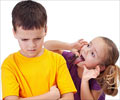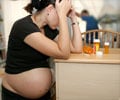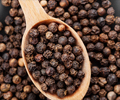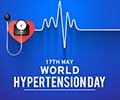What is Depression?
Everyone experiences variations in mood - transitory blues, disappointments, the normal grief that accompanies the loss of someone you love. But a severe or prolonged depression that interferes with the ability to function, feel pleasure, or maintain interest is not a mere case of the blues. It is an illness. Researchers have demonstrated that it results from biochemical imbalances in the brain.
In depression faith in deliverance, in ultimate restoration, is absent. The pain is unrelenting, and what makes the condition intolerable is the foreknowledge that no remedy will come not in a day, an hour, a month, or a minute. It is hopelessness even more than pain that crushes the soul. - William Styron, 1990
Depression is one of the most common mental disorders affecting approximately 340 million people in the world. No one is immune from depression - it occurs in people of all social classes, all countries and all cultural settings.
One in four women and one in ten men can expect to develop depression during their lifetime, but it's not just adults who suffer. Depression affects at least one in 50 children under 12 and one in 20 teenagers. A depressive disorder is an illness that involves the body, mood, and thoughts. It affects the way a person eats and sleeps, the way one feels about oneself, and the way one thinks about things. A depressive disorder is not the same as a passing blue mood. It is not a sign of personal weakness or a condition that can be willed or wished away. People with a depressive illness cannot merely "pull themselves together" and get better. Without treatment, symptoms can last for weeks, months, or years.
Types of Depression
Major depression - It is manifested by a combination of symptoms that interfere with the ability to work, study, sleep, eat, and enjoy one’s pleasurable activities. Such a disabling episode of depression may occur only once but more commonly occurs several times in a lifetime.
Dysthymia - involves long-term, chronic symptoms that do not disable, but keep one from functioning well or from feeling good.
Bipolar disorder - is characterized by cycling mood changes. It is also called manic- depressive illness. Bipolar disorder involves cycles of depression and elation or mania. Mania often affects thinking, judgment, and social behavior in ways that cause serious problems and embarrassment. This phase is often a chronic recurring condition.
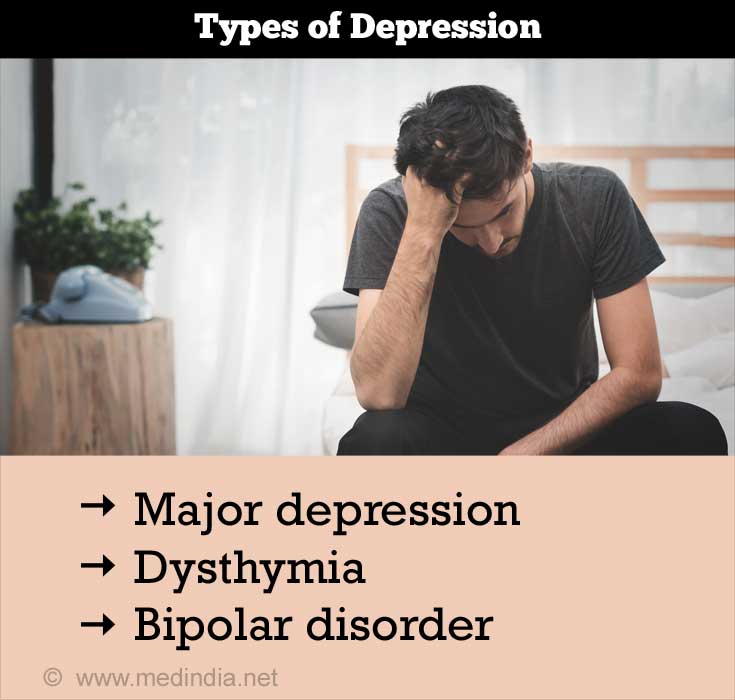
Causes of Depression
For some people, a combination of many factors may be causing clinical depression. For others, a single factor may be triggering the illness. Depression often is related to the following.
Imbalance of brain chemicals called neurotransmitters - Changes in these brain chemicals may cause or contribute to depression.
Certain diseases or illnesses - Ailments such as cancer, heart disease,
Negative thinking patterns - People who are pessimistic, have low self-esteem, worry excessively, or feel they have little control over life events are more likely to develop depression.
Family history of depression - A genetic history of clinical depression can increase one's risk for developing the illness. But depression also occurs in people who have had no family members with depression.
Difficult life events - Events such as the death of a loved one, divorce, financial strains, history of trauma, moving to a new location or significant loss can contribute to the onset of clinical depression.
Certain medications - Some medication can actually cause clinical depression. Therefore, it is important that people inform their doctors of all medications they are taking and report any depressive symptoms.
Frequent and excessive alcohol consumption - Drinking large amounts of alcohol on a regular basis can sometimes lead to clinical depression.
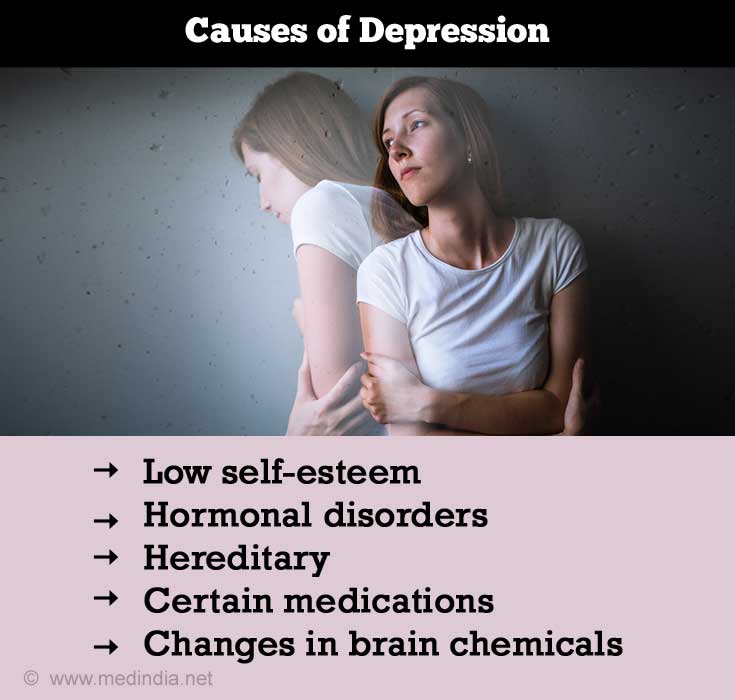
Symptoms of Depression
The symptoms can range from mild to severe and the causes of depression can often be complex.
"Physical and social functioning are impaired by depression to a greater degree than by hypertension, diabetes, angina, arthritis, gastrointestinal diseases, lung problems, or back ailments." - Journal of Clinical Psychiatry Nov 1993
- Persistent sad, anxious or "empty" mood.
- Sleeping too little or sleeping too much.
- Reduced appetite and weight loss, or increased appetite and weight gain.
- Excessive alcohol consumption is also sometimes a symptom of depression.
- Feelings of guilt, worthlessness and helplessness.
- Loss of interest or pleasure in hobbies and activities that were once enjoyed, including sex.
- Fatigue or loss of energy.
- Thoughts of death or suicide.
- Restlessness, irritability.
- Persistent physical symptoms that do not respond to treatment, such as headaches, digestive disorders, and chronic pain.
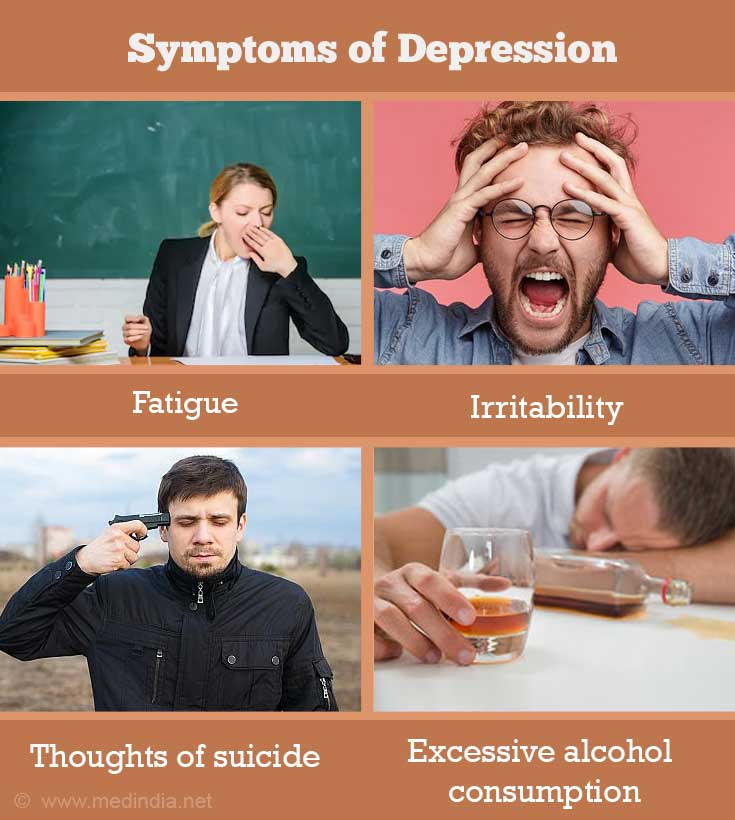
Diagnosis of Depression
The first step to getting appropriate treatment is a complete physical and psychological evaluation to determine whether the patient has depressive illness, and of what type it is.
A good diagnostic evaluation also will include a complete history of the symptoms, i.e., when they started, how long they have lasted, how severe they are, whether the patient had them before and, if so, whether they were treated and what treatment they received.
Alcohol and drug abuse should be asked about.
Further, a history should include questions about whether other family members have had a depressive illness.
Last, a diagnostic evaluation will include a mental status examination to determine the speech and memory pattern.
Treatment for Depression
Clinical depression is one of the most treatable medical illnesses and getting treatment can save lives.
The choice of treatment depends on how severe the depressive symptoms are and the history of the illness.
The most commonly used treatments are
Medication
- Antidepressant medication acts on chemical pathways of the brain.
- The two most common types are selective serotonin reuptake inhibitors (SSRIs) and tricyclic antidepressants (TCAs).
- Antidepressant medications are not habit-forming. It may take up to eight weeks to notice an improvement.
Psychotherapy
- Therapy can be effective in treating clinical depression, especially depression that is less severe.
- Scientific studies have shown that short term (10-20 weeks) courses of therapy are often helpful in treating depression.
Cognitive/behavioral therapy helps change negative styles of thinking and behavior that may contribute to clinical depression. - Interpersonal therapy focuses on dealing more effectively with other people, working to change relationships that can cause or worsen clinical depression.
- Treating metabolic disorders could help some patients with depression.
Electro convulsive therapy (ECT)
- This treatment is recommended when people cannot take or do not improve with medication when the risk of suicide is high, or if someone is debilitated due to another physical illness.
Herbal Therapy
- In the past few years, much interest has risen in the use of herbs in the treatment of both depression and anxiety.
- Hypericum perforatum, an herb used extensively in the treatment of mild to moderate depression in Europe, has recently aroused interest around the world. However, the scientific studies that have been conducted on its use have been short-term and have used several different doses.
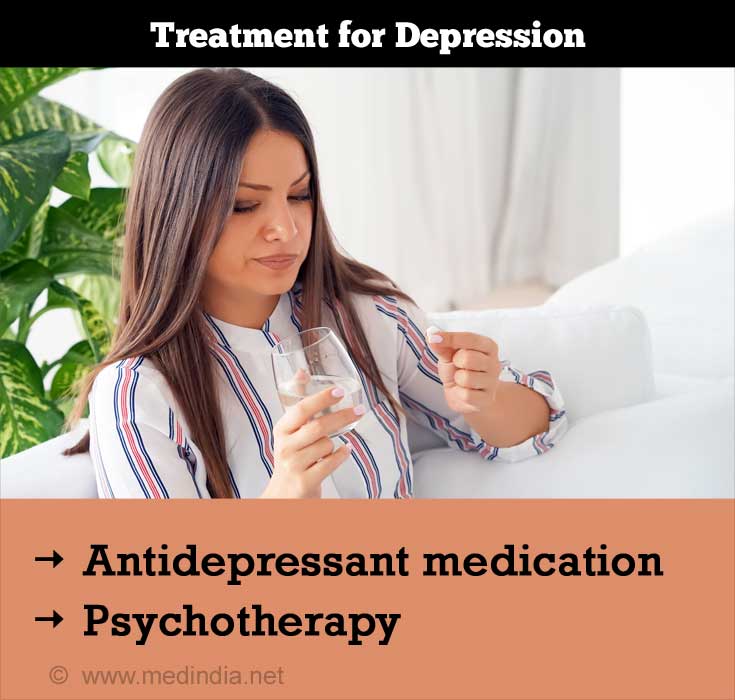
Do's and Dont's in Depression
- Depressed person needs a lot of love and care to get back to normal.
- Don't stop taking your antidepressant medication too soon or without the doctor's knowledge. Inform the doctor about any side-effects.
- Take good care of the person during treatment for clinical depression. Be sure to get plenty of rest, sunshine, exercise and nutritious, well-balanced meals. Reducing the stress in life will also help.












